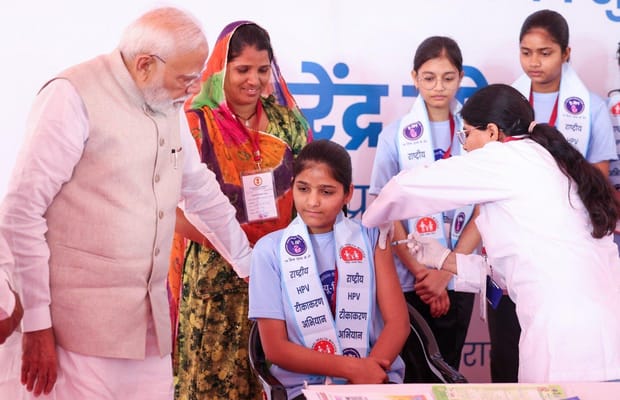































Chinese New Year celebrations are set to get even more exciting as River Hongbao marks its 40th anniversary this year. The iconic event will bring a range of lantern displays and activities to Gardens by the Bay from February 15 to 24, all free for visitors. One of the highlights is the return of River Hongbao’s fireworks display, which hasn’t been seen since 2020. The show will feature vibrant, choreographed bursts of color, with timings at 8 pm on February 15, midnight on Chinese New Year’s Eve (February 16), and 9 pm on the first two days of Chinese New Year (February 17 and 18) at The Meadow.
In addition, a special 40th anniversary exhibition will showcase the history of River Hongbao through photos, videos, lanterns, and interactive elements. Committee member Pok Cheng Chong shared that the exhibit allows visitors to “walk through River Hongbao’s journey” and even write down their wishes for future events. Having joined the committee in 2023, Cheng Chong said he is especially excited about this milestone, which celebrates 40 years of growth and evolution.
The anniversary will also feature special lantern installations. The Welcome Arch at The Meadow, shaped like the number 40 and decorated with floral designs representing spring and new beginnings, greets visitors as they enter. Another installation, Galloping into the Year of the Horse, draws inspiration from the Mandarin expression wan ma ben teng (thousands of horses galloping), symbolizing prosperity and success, with a backdrop of HDB flats designed as a scroll to blend tradition with modern life.
Returning favorites include the towering God of Fortune lantern, symbolizing luck and blessings. This year, it holds a Ruyi sceptre, representing power and wish-granting, and a bundle of cabbage, which in Mandarin (bao cai) sounds like “wrapping up fortune.” Complementing the River Hongbao festivities, Gardens by the Bay’s Flower Dome will host Spring Blossoms: Gallop into Prosperity from January 16 to March 1. The display features eight life-sized horse lanterns set among plum blossoms, orchids, chrysanthemums, and bamboo — known as the “Four Gentlemen” of Chinese art — inspired by the classic ink painting Ba Jun Tu and the serene Jiangnan Gardens.
River Hongbao 2026 will also feature live performances by local artists and cultural troupes, movie screenings by director Jack Neo’s J Team Productions, and family-friendly amusement rides at the Supertree Grove, including a double-story horse carousel, Flying Dumbo, and carnival games, with tickets required for rides. The event takes place at Gardens by the Bay, 18 Marina Gardens Drive, Singapore, with opening hours from 6:30 pm to 10:30 pm on February 15, 6:30 pm to 12:15 am on February 16, and 2:30 pm to 10:30 pm from February 17 to 24.
Disclaimer: This image is taken from AsiaOne.

Miss Mexico Fatima Bosch was crowned Miss Universe 2025 on November 21 during the grand finale held in Bangkok, Thailand. At 25, she became the fourth woman from Mexico to win the prestigious title and the 74th winner in the pageant’s history. Bosch earned the crown after competing against a strong group of finalists, including Miss Thailand Praveenar Singh, Miss Venezuela Stephany Abasali, Miss Philippines Ma Ahtisa Manalo, and Miss Côte d’Ivoire Olivia Yace.
Her victory followed weeks of intense attention after a viral confrontation with Thai pageant executive Nawat Itsaragrisil. During a livestream on November 4, Nawat publicly reprimanded Bosch for not posting promotional materials and appeared to insult her by calling her a “dumb head.” The remark prompted Bosch to walk out of the room, a move that several other contestants supported by following her out. Shortly after the incident, Bosch shared a message on social media saying that if something costs a person their dignity, it is better to walk away.
Nawat later offered a public apology, explaining that the pressure of the event had caused him to lose control. He said he did not intend to insult anyone and later claimed that he had not called Bosch a “dumb head,” but had used the word “damage” instead. His behaviour drew criticism from Raul Rocha, president of the Miss Universe Organization, who condemned his actions and announced that the Thai director’s participation in future events would be limited.
The 2025 pageant faced several other controversies as well. A week after the walkout incident, two judges resigned, one of whom, Omar Harfouch, claimed that the competition had been rigged. He stated on social media that two days before the final, a secret vote had been held to pre-select 30 contestants, even though the individuals involved were not official members of the judging panel. The Miss Universe Organization rejected these allegations, insisting that no external group had been authorized to evaluate contestants or choose finalists.
Adding to the tension, Miss Jamaica Gabrielle Henry fell off the stage during the preliminary evening gown round on November 19 and had to be taken out on a stretcher. An update released on November 25 confirmed that she had been treated at the hospital and had not suffered any broken bones.
Despite the controversies that surrounded this year’s event, Fatima Bosch’s achievement remains a defining moment. Her grace under pressure and her ability to stand firm in the face of criticism earned admiration from audiences around the world, ensuring that her Miss Universe 2025 win will be remembered long after the noise surrounding the pageant fades.
Disclaimer: This image is taken from Insta/missuniverse.

Have you ever wanted to go on a cruise without committing to an overnight stay? Next month, that option will become available. The new World Legacy cruise allows guests the flexibility to either spend a few hours on the ship or extend their stay to an overnight or a three-day two-night experience, according to World Cruises in a press release on November 18. Unlike most cruises that typically require a minimum one-night stay depending on the itinerary, this cruise offers more freedom for travelers.
Guests can board and disembark the ship via a ferry system, with departures from both the Singapore Cruise Centre and JB Puteri Harbour Cruise Centre at various times throughout the day. In addition to these daily ferry transfers, World Legacy will make weekly stops at Harbourfront Centre every Friday, allowing passengers to board directly from Singapore without needing a ferry. Preview voyages will begin on December 18, with embarkation via a dedicated ferry from the Singapore Cruise Centre at Harbourfront Centre.
According to Martin Blanar, vice president of the brand's hotel operations, World Legacy was designed for those seeking a quick getaway without the limitations of a traditional holiday. Guests can enjoy nightlife, dining, and entertainment at their own pace. Visitors can come aboard, relax, indulge, and even party through the night before disembarking whenever they choose. With the rising cost of a typical night out, this cruise offers a refreshing duty-free alternative where passengers can disconnect, recharge, and enjoy themselves.
During the day, the ship offers wellness activities such as spa services, while evenings are filled with entertainment, drinks, and live music. Clubhouse 88 serves as a sports bar featuring live screenings of international sporting events, themed nights, and a curated bar menu. Illusion Bar provides a theatrical speakeasy experience with immersive cocktails and entertainment, while Legacy Theatre hosts live performances by renowned singers from across Asia in an intimate livehouse setting. Other onboard activities include a kids arcade and private karaoke suites. By 2026, guests will also be able to enjoy panoramic views of the Straits from the Sunset Deck, which will host activities throughout the day including morning wellness sessions, golden hour music and drinks, and nightlong entertainment, while also serving as a space for private events.
Food lovers will find a variety of dining options onboard. The Legacy Buffet offers an international selection of cuisines, while Uncle Wu Cafe provides Asian-inspired casual meals around the clock. For a more refined experience, guests can dine at Orchid Pavilion, which serves traditional Chinese dishes.
The ship features approximately 300 cabins, ranging from small two-person rooms to larger family cabins that can accommodate three to four people, with VIP suites available for those seeking a luxurious stay. Cabin rates for a three-day two-night stay start at 128 USD for a Standard Two Single Interior room. Ferry tickets are priced at 58 USD online and 78 USD walk-in for adults, 38 USD online and 58 USD walk-in for senior citizens aged 60 and above, and 10 USD online and 20 USD walk-in for children aged 12 and below. Tickets include port and local taxes, non-halal meals on Deck 3, and a luggage allowance of one hand carry bag of seven kilograms and one check-in bag of 20 kilograms per guest. Ferry tickets also allow passengers to remain on board for up to 20 hours without a cabin, with extension fees applicable. To mark the launch, the cruise is offering a promotional package at 89 USD per person for a three-day two-night stay for two guests. This package includes ferry transfers, buffet breakfast, and full-day meals on Deck 3, giving passengers a chance to experience the cruise in style.
Disclaimer: This image is taken from World Cruises.

Zeekr has officially launched its 7X electric crossover in Singapore, joining the X small crossover and the 009 luxury MPV in the brand’s local lineup. The 7X is a mid-sized crossover, comparable in size to the BMW X3 and Mercedes-Benz GLC. Zeekr aims to attract buyers in this segment by offering strong performance, premium features, and high-quality craftsmanship at a competitive price. In Singapore, the 7X will be available in three variants: the Standard RWD with a 75kWh battery, the Long Range RWD with a 100kWh battery, and the top-spec Performance AWD with a 100kWh battery.
Even the base Standard model delivers an impressive 410hp and 440Nm of torque, enabling a 0-100 km/h sprint in six seconds. The Long Range RWD matches this performance, while the Performance AWD boosts output to 637hp and 710Nm of torque, achieving 0-100 km/h in just 3.9 seconds.
All three models feature an 800-volt electrical architecture with supercharging capability. Charging speeds are rated up to 450kW for the Standard 75kWh battery, and 420kW for the Long Range and Performance 100kWh batteries. Fully charged, the Standard offers a range of 480 km, while the Long Range and Performance reach 615 km and 543 km, respectively.
Standard equipment includes a 13-inch digital driver display and a 16-inch central touchscreen, along with two wireless smartphone chargers and rear seats that can recline electrically up to 10 degrees. The Long Range and Performance variants add luxury touches such as ventilated front seats with massage functions and a 21-speaker premium sound system. Optional upgrades include an automatic door opening system and, on the Performance model, a Stargate front light panel capable of displaying pre-set messages.
Pricing starts at $239,999 with COE for the 7X Standard, rising to $272,999 for the Long Range and $295,999 for the Performance variant (as of September 2025). Zeekr is relying on the 7X to strengthen its growing presence in Singapore, and early demand has been strong, with 100 units sold even before the official launch.
Disclaimer: This image is taken from AsiaOne/Ben Chia.



A crocodile has been spotted in the southern waters of Singapore, leading to increased patrols and safety warnings on Sentosa’s beaches. Authorities are keeping track of the animal’s movements and advising visitors to avoid entering the water. Andrea Heng and Susan Ng report on saltwater crocodiles, with insights from Kannan Raja, President of the Herpetological Society of Singapore.
Disclaimer: This podcast is taken from CNA.

In Destination Anywhere, Melanie Oliveiro explores the food-focused travel journeys of Naomi Ngoo, founder of SALT.Singapore, the award-winning hawker stall known for its Western and Asian offerings. Ngoo shares memories from Rome, where she savored fresh pasta at the popular Pomodorum, sampled fried delights from Taiwan’s famous Devil Chicken, and enjoyed affordable, high-quality steaks at the UK-based Flat Iron chain. She also reveals how these culinary experiences inspired new SALT.Singapore creations, contributing to her win at the Singapore Hawkers’ Celebration and Awards 2025.
Disclaimer: This podcast is taken from CNA.

Soaring rents are pushing businesses out of Kampong Glam, with many shopowners who recently renewed their leases reporting sharp increases — in some cases nearly double — which they attribute to a growing trend of subletting. Over the years, many vacated spaces have been replaced primarily by souvenir stores and photobooths. Andrea Heng and Elakeyaa Selvaraji analyse the data and discuss its implications with Zaki Maarof, Chairman of the Kampong Gelam Alliance.
Disclaimer: This podcast is taken from CNA.

In the “Made in SG” segment, Melanie Oliveiro sits down with Clara Teo and Alex Fan, the husband-and-wife duo behind Sunday Bedding, a homegrown bedding and textile brand. They discuss the origins of the brand, which began when the couple was searching for high-quality bed sheets and gradually grew into a more meaningful venture. Teo and Fan explain how Sunday Bedding creates sheets tailored for Singapore’s climate, how their experience in textiles has given them an edge, and why they choose to collaborate with other local brands. They also share insights on operating physical stores in Joo Chiat and Holland Village, as well as the effects of US tariffs on their American sales.
Disclaimer: This podcast is taken from CNA.









